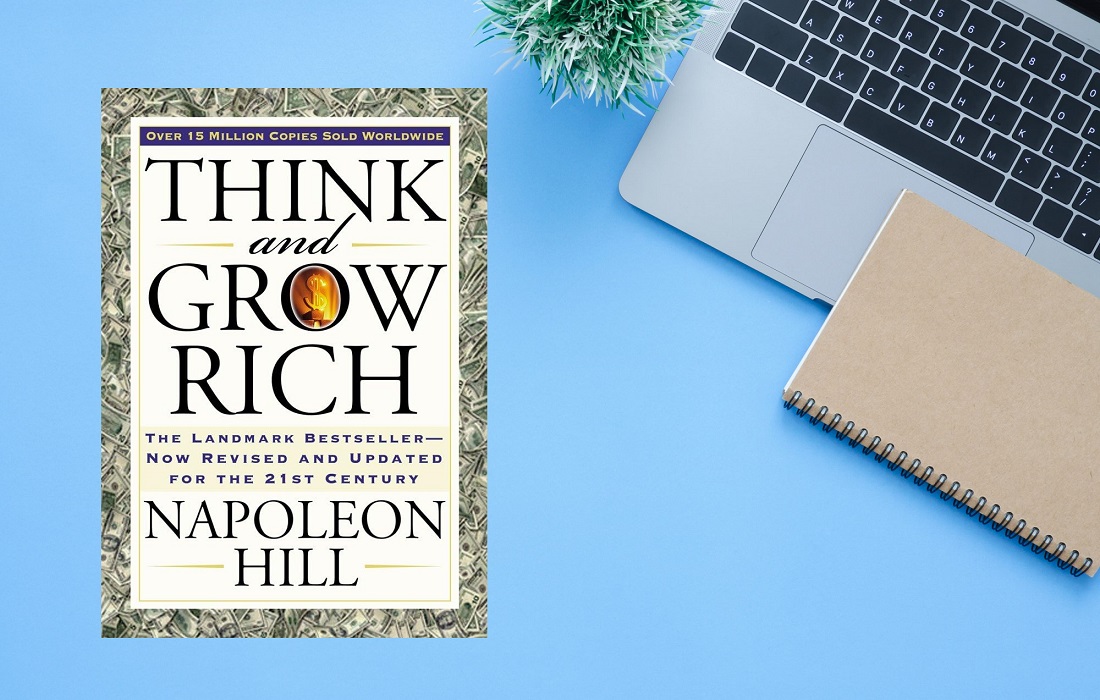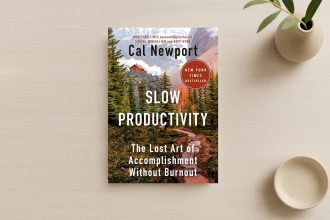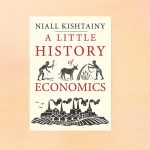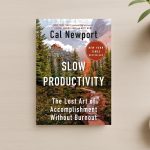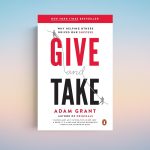What if the secret to wealth wasn’t just hard work, but a specific mindset? In Think and Grow Rich Napoleon Hill reveals the timeless principles used by history’s most successful people—from Andrew Carnegie to Henry Ford—to turn ambition into achievement. More than just a financial guide, this iconic book explores the psychology of success, emphasizing desire, persistence, and the power of thought. First published in 1937, Hill’s 13-step formula remains shockingly relevant today, blending practical strategies with profound philosophy. Whether you seek financial freedom or personal mastery, this book will challenge how you think about money, opportunity, and your own potential.
1. Introduction to Think and Grow Rich by Napoleon Hill
Since its first publication in 1937, Think and Grow Rich by Napoleon Hill has been regarded as one of the most influential personal development books ever written. Often praised as the “grandfather” of motivational literature, it has inspired millions to rethink their relationship with success, money, and achievement. Though deeply rooted in the Great Depression era, its principles remain strikingly relevant for the modern reader — from entrepreneurs and business leaders to students and everyday dreamers.
In this comprehensive review, we’ll explore Think and Grow Rich from every angle — its historical context, its 13 life-changing principles, the strengths and weaknesses of its arguments, and how its lessons can be applied in today’s world. Whether you’re curious about reading the book for the first time or want to revisit its wisdom with fresh eyes, this breakdown will give you both clarity and motivation.
2. About the Author – Napoleon Hill
Napoleon Hill was more than just an author — he was a pioneer in the field of personal success philosophy. Born in 1883 in rural Virginia, Hill rose from poverty to become a journalist, lecturer, and eventually one of the most respected success thinkers of his time. His career took a critical turn when industrial magnate Andrew Carnegie allegedly challenged him to study the habits, mindsets, and strategies of the most successful individuals across America.
Over 20 years, Hill interviewed over 500 successful people — including Henry Ford, Thomas Edison, Alexander Graham Bell, and Charles M. Schwab — distilling their success patterns into a structured philosophy. The result was Think and Grow Rich, a handbook not only for financial success but personal growth and purposeful living.
3. Book Overview & Historical Context
Published during the aftermath of the Great Depression, Think and Grow Rich came at a time when people were desperate for hope and practical advice on rebuilding their lives. While many books of that era offered temporary financial tactics, Hill’s work delved deeper — focusing on cultivating a mindset that would naturally lead to achievement.
The book is built on thirteen principles that Hill claimed were common among the wealthy and successful. These principles are not merely tips; they are a framework for transforming your thinking patterns, taking decisive action, and persisting despite challenges.
Hill’s philosophy is not limited to material wealth. While financial prosperity is a recurring theme, the “riches” he speaks of span spiritual peace, personal fulfillment, and lasting happiness.
4. Summary of the 13 Principles in Think and Grow Rich
Hill organizes his philosophy around thirteen core steps to riches:
- Desire
All achievement begins with a burning desire for a specific goal. Hill emphasizes that vague wishes rarely lead anywhere — you must transform desire into a definite purpose backed by a concrete plan.
- Faith
Faith here is not exclusively religious; Hill defines it as a deep, unwavering belief in yourself and your goal. Through affirmations and visualizations, faith fuels action and persistence.
- Autosuggestion
This principle is about influencing your subconscious mind by consciously feeding it thoughts of success, reinforcing commitment through repeated positive statements.
- Specialized Knowledge
Hill draws a distinction between general knowledge (which does not guarantee success) and specialized knowledge — skills, experiences, and insights that set you apart in your chosen field.
- Imagination
Creative imagination sparks innovation, while synthetic imagination adapts existing ideas in new ways. Both are necessary for identifying opportunities and solutions.
- Organized Planning
Faith and desire are useless without a grounded action plan. Hill stresses the need for structured steps, teamwork, and constant revision of your approach.
- Decision
Procrastination is the death of success. Hill observed that high achievers make decisions quickly and change them slowly.
- Persistence
Even the best plan will face setbacks. Persistence, according to Hill, is the sustained effort powered by desire and faith.
- The Mastermind
Surround yourself with a network of like-minded, capable people. A “Mastermind” alliance combines multiple minds to produce greater creativity and problem-solving.
- The Subconscious Mind
This acts as a bridge between your conscious thoughts and your creative potential. Hill explains techniques for reprogramming it toward success.
- The Brain
The brain is both a broadcasting and receiving station for thoughts. Hill touches on early ideas about the vibrational nature of thought.
- The Sixth Sense
This refers to a heightened intuition — a kind of “receiving set” for inspired ideas when all other principles are mastered.
- Overcoming Fear
Hill identifies six chief fears that hold people back: fear of poverty, criticism, ill health, loss of love, old age, and death.
5. Deep Dive into Key Insights
Hill’s greatest innovation was reframing wealth as the result of internal transformation rather than external circumstances. He believed success begins with mastering thought patterns and emotional states — a revolutionary idea in the 1930s that is now widely accepted in psychology and business coaching.
Another important insight is the Mastermind concept, which remains relevant in networking, mastermind groups, and collaborative entrepreneurship today. Hill understood that proximity to high achievers accelerates personal growth.
Finally, his call to develop persistence has universal appeal. Hill uses real-life stories of famous inventors and business leaders to illustrate that enduring repeated failure is often the final step before massive success.
6. Strengths of the Book
– Timeless Framework: Despite being almost 90 years old, Hill’s 13 principles still resonate in personal development and business.
– Inspirational Stories: Hill’s anecdotes about Edison, Ford, and others make abstract ideas concrete.
– Mindset Focus: The emphasis on thoughts and beliefs as drivers of success aligns with modern psychology.
7. Criticisms & Controversies
- Lack of Empirical Evidence: While Hill claimed to have interviewed hundreds of successful figures, historical verification of many interviews is debated.
- Overemphasis on Positive Thinking: Critics argue Hill overlooks structural and systemic obstacles to success.
- Outdated Language: Some metaphors and references feel old-fashioned and may alienate modern readers without context.
8. Applying Think and Grow Rich Today
Despite its age, Hill’s principles can be adapted for modern success:
– Desire + Clarity: Write down specific goals for health, career, and relationships.
– Autosuggestion in Action: Use affirmations or digital vision boards.
– Mastermind Online: Connect with ambitious peers through LinkedIn groups or professional forums.
– Continuous Learning: Specialize in skills that AI and automation can’t easily replace.
– Decision-Making: Train yourself to make small decisions quickly to build confidence for bigger ones.
9. Final Verdict
Think and Grow Rich by Napoleon Hill is essential reading for anyone interested in the psychology of success. While some examples and terminology show their age, the core message — that your mindset shapes your destiny — is timeless. For readers willing to adapt its principles to the digital era, it remains a powerful roadmap to both personal and professional achievement.
10. Conclusion
If you’re seeking a book that combines motivation, structured thinking, and practical steps toward wealth and fulfillment, Think and Grow Rich by Napoleon Hill should be on your shelf. Its ability to inspire action, encourage resilience, and shift mental habits is why it’s still selling millions nearly a century later.
Whether you aim for business success, personal mastery, or both, Napoleon Hill’s philosophy offers a mental blueprint that’s as valuable now as it was in 1937.
If you found this review helpful, please share it or leave a comment below.

